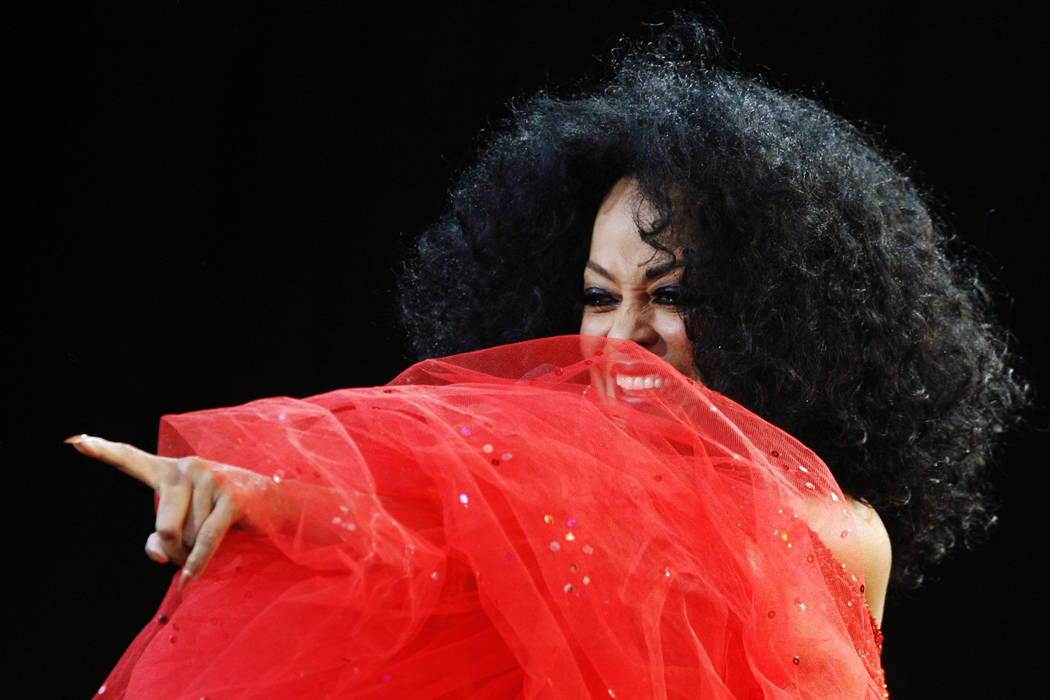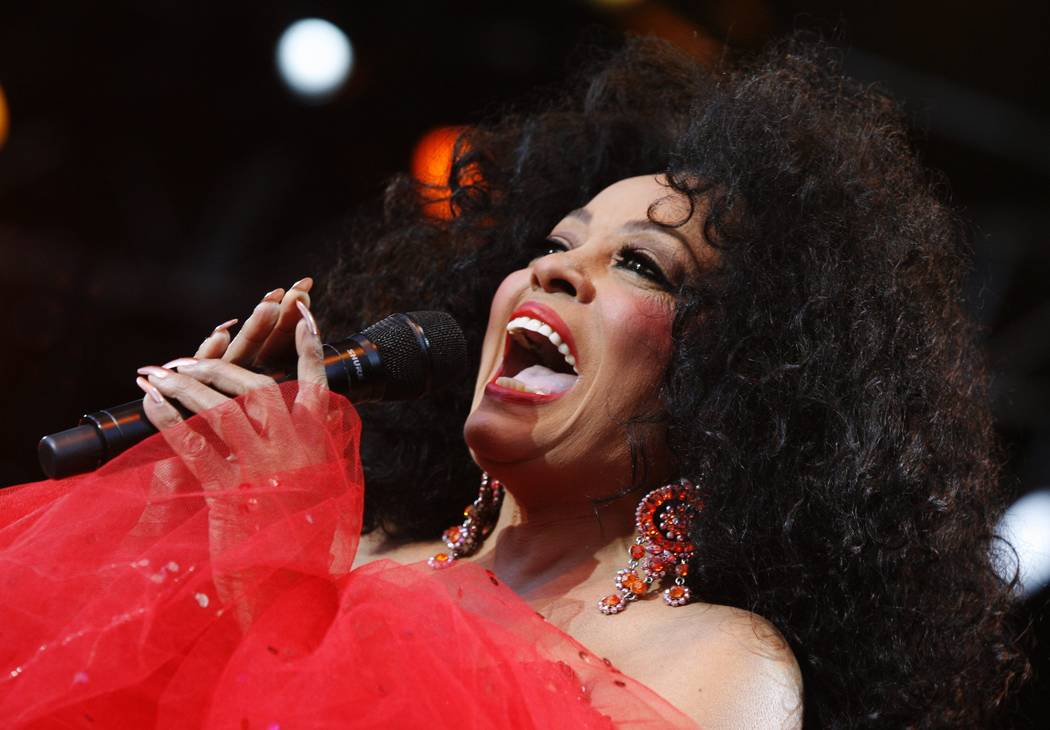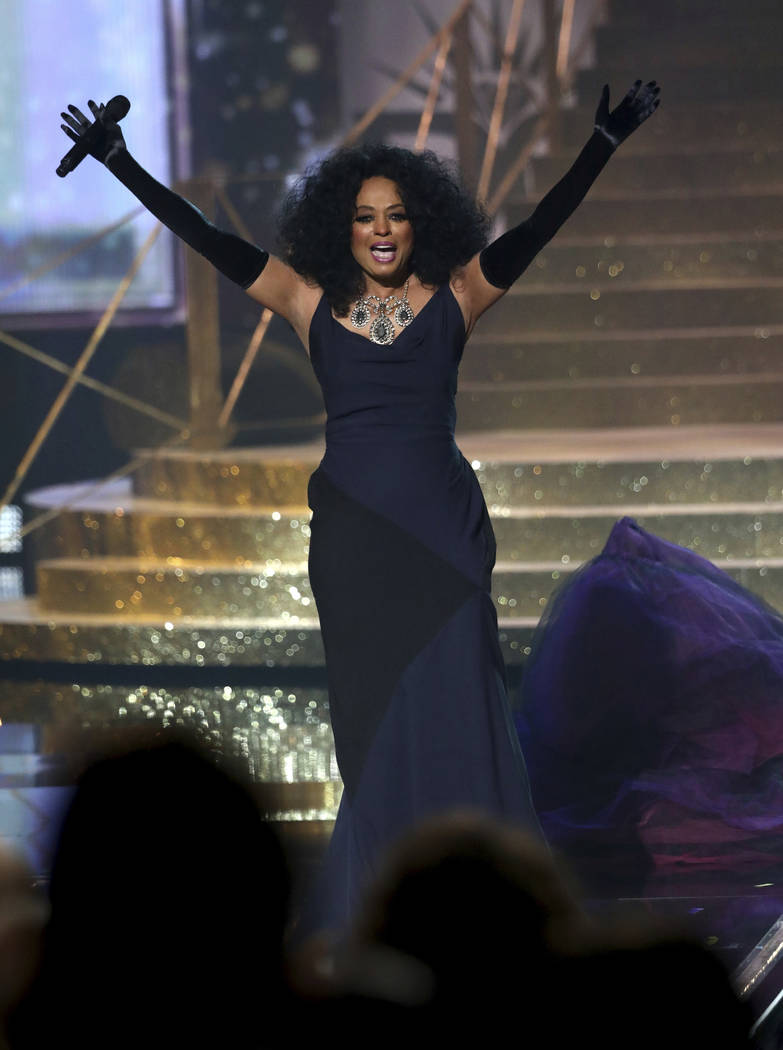Diana Ross, nearly 75, continues building on divine legacy



She’s right up there with coal reserves and uranium deposits, unquestionably.
Back in 1977, Time magazine labeled Diana Ross “one of America’s most natural resources” — sure it was in a scathing review of movie misfire “The Wiz,” but that designation was more than mere hyperbole amid a takedown of Nipsey Russell-portrayed tin men.
About to turn 75 and launch her residency at Wynn Las Vegas, Ross is a multigenerational musical icon who’s still making history: Last year, she became the first artist to notch consecutive No. 1 hits on Billboard’s Dance Club Songs chart with remixes of songs that also topped the chart in their original form (“I’m Coming Out/Upside Down 2018” and “Ain’t No Mountain High Enough”).
So you really can make the case that Ross has earned the kind of seemingly over-the-top praise that Time once gave her, which is precisely what we’re going to do:
She helped crumble racial barriers in pop music
It was a glass ceiling that bruised many skulls.
Even by the mid-’60s, the barrier between black artists and the musical mainstream remained high enough to cast an unwelcome shadow over plenty of African-American performers, with race serving as a restrictor plate of sorts to limit widespread success among audiences of all colors.
Remember, this era was scarcely removed from the days when white artists routinely covered songs by black artists and made them much bigger hits, from “Hound Dog” to “Rock Around the Clock” to “Louie Louie” to plenty of other rock ’n’ roll standards.
That aforementioned barricade was bulldozed by Diana Ross and the Supremes, though.
Only the Beatles sold more records in the ’60s than the Supremes, maybe the first true African-American crossover music superstars.
Beginning with their first chart-topper, 1964’s “Where Did Our Love Go,” they notched an unprecedented 10 No. 1 singles in a span of three years, earning 12 overall en route to becoming the most successful vocal group of all time.
Remember that glass ceiling? The Supremes reduced it to shards.
She is the diva defined
Prior to the Supremes, the girl groups of the day tended to carry themselves like their male counterparts, seldom outwardly embracing their womanhood, often dressing conservatively.
But the Supremes did the opposite: They played up their femininity, highly stylized in terms of both their look and their performances.
Ross was glam before “glam” was a thing, regal and ever elegant, a fashion plate for the ages, equal parts peacock and songbird.
This wasn’t just surface appeal for the Supremes, nor was it a case of them objectifying themselves and catering exclusively to the male gaze.
It was a group of women, led by Ross, unabashedly reveling in being women, which was no small thing considering the time.
Sure, the Civil Rights Act of 1964 prohibited discrimination on the basis of sex, among other things, but a woman still couldn’t sit on a jury or even get a credit card in her name without her husband’s co-signature in the ’60s.
In this context the Supremes were downright revolutionary — no cosigns needed.
She’s among the most decorated musicians ever
OK, so there is the strange Susan Lucci thing going on here.
Remember when that daytime soap megastar played Charlie Brown to the Daytime Emmy Awards’ Lucy, getting nominated 18 times only to come up empty, before finally winning 20 years in?
Well, at least she got her mitts on one.
Somewhat inexplicably, Diana Ross has been nominated for a Grammy 12 times and never won one in a competitive category — she did get a Grammy Lifetime Achievement Award in 2012, though.
Nevertheless, Ross has managed to balance those odd Grammy snubs with an enviable litany of accolades that includes being named the most successful female music artist in history by the Guinness Book of World Records, earning Billboard’s Female Entertainer of the Century, a Tony Award, a Kennedy Center Honor and the Presidential Medal of Freedom.
Contact Jason Bracelin at jbracelin@reviewjournal.com or 702-383-0476. Follow @JasonBracelin on Twitter.
Preview
Who: Diana Ross
When: 8 p.m. Wednesday and Feb. 8 and 9, with additional shows through Feb. 23
Where: Encore Theater at Wynn Las Vegas, 3131 Las Vegas Blvd. South
Tickets: $60.50-$301 (702-770-9966)













